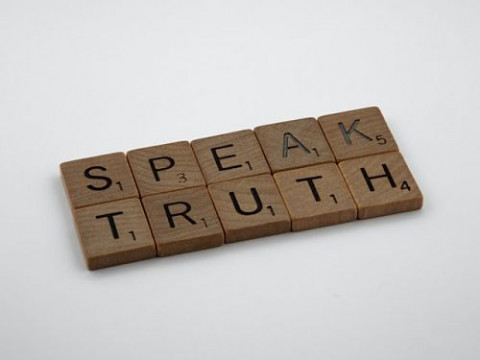How Does Culture Affect The Way We Tell Lies?
Researchers believe they have discovered a link between someone's culture and the language they use when they are telling lies.
Psychologists, led by Professor Paul Taylor of Lancaster University in the UK, have just published the findings of their research, entitled "Culture moderates changes in linguistic self-presentation and detail provision when deceiving others", in Royal Society Open Science.
Participants in the study were made up of Black African, South Asian, White European and White British ethnic groups.
All completed a catch-the-liar task in which they provided genuine and false statements about either their past experiences or an opinion and counter-opinion.
"On the basis of previous evidence of cultural differences in self-construal and remembering, we predicted and found evidence for cultural differences in the extent to which truths and lies contained self (versus other) references and perceptual (versus social) details."
The data pointed to a trend that indicated that the statements of Western liars tended to include fewer references in the first-person, i.e the use of "I" pronouns, than the statements of Western truth-tellers.
This is nothing new as it is known that liars do this to distance themselves from the lie.
However, what they did find is that this difference did not exist when examining the lies of Black African and South Asian participants. In fact, the exact opposite seemed to occur whereby they increased the use of the first person and decreased their use of the third person pronouns.
Why? The psychologists believe that as they are more collective cultures, they seek to distance their social group from the lie rather than themselves, i.e. the collective is more important than the individual.
Another trend the research found was in the kinds of contextual details used when lying.
The White European and White British participants, as per above, acted as previous research has found in that they decreased the perceptual information they provided in their lie. In contrast, the Black African and South Asian participants actually increased the perceptual information they gave when lying. The research believes this happens in order to compensate for providing fewer social details.
"The results demonstrate that linguistic cues to deception do not appear consistently across all cultures. The differences are dictated by known cultural differences in cognition and social norms."
As highlighted by the report's authors, this basic finding has implications on many areas of public life including the justice system, i.e. police, healthcare, asylum and immigration, etc. Within commerce and business, it will also impact areas such as HR and discrimination proceedings.
"In the absence of culture-specific training, an individual's judgements about veracity is most likely drawn from either experience or an evidenced-based understanding based on studies of Western liars. In these scenarios, erroneous judgements of veracity may impact on justice."
"In today's world, where law enforcement and justice are asked to respond to a greater cultural diversity of suspect it will be important to use findings such as those presented here to adapt existing practices and policies so that they afford justice for all communities within the population."
Electronic supplementary material is available online at https://dx.doi.org/10.6084/m9.figshare.c.3787406.
Summary: Psychologists have found that culture affects the way people lie. When lying, Westerners tend to use the first person less, while Africans and Asians did the opposite and used the first person. While Westerners decreased perceptual information in their lies, African and Asian cultures did the opposite and increased this information.

If you are interested in culture, then check out our online Cultural Awareness Training program!
We have both a free version and a paid version available. Full of great cultural insights and direction, this course will help you to unpick and navigate cultural differences with ease and credibility!
Photo by Brett Jordan on Unsplash
By accepting you will be accessing a service provided by a third-party external to https://www.commisceo-global.com/

 +44 0330 027 0207 or +1 (818) 532-6908
+44 0330 027 0207 or +1 (818) 532-6908
